
.com

Estd. 2020
Centenary
Project
2027

Approved by the Shaw Family



THE
JUST MEN


"shut up rusty! i'll put you in solitary!"

"He was my soulmate; and what a towering talent. I just think he burnt himself out."


Episode 22: Crack-Up

Robert Shaw as
Sergeant Marty Stuart

A private airplane carrying five million dollars in stolen bullion is lost without trace in the Canadian wilderness. Five years later the airplane is found, and Ryder is asked by the pilot's widow to prove that her husband was innocent of the theft.
Directed by Anthony Bushell
Written by Louis Marks and Lee Leob
Produced by Sidney Cole, Hannah Weinstein and
Jud Kinberg
Cinematography by Gerald Moss
Edited by Richard Sidwell
Art Direction by Ted Clements
Make-Up by Wally Schneiderman
Production Management by Eddie Pike and Harold Buck
Second Unit Direction by Frank Hollands and Peter Weingreen
Sound by Fred Ryan
Camera Operation by Noel Rowland
Costumes by Brenda Dabbs
Music by Francis Chagrin
CAST
Richard Conte as Jeff Ryder
June Thorburn as Vicky
Delena Kidd as Ingrid Brandt
Charles Irwin as Flynn
Paul Eddington as Rusty
Richard Clarke as Krager
Max Faulkner as Guard
Special Appearance by Jack Hawkins as Ben Manfred
Released by Sapphire Films and ITC Entertainment for ITV
Transmission Date: Wednesday 24th February 1960
Episode Running Time: 30 minutes
Location(s): Walton Studios, Walton-on-Thames, Surrey






THE

JUST MEN
gallery
INCLUDING COLOURISED VERSION



THE
JUST MEN



Opening Credits
Opening Credits from this iconic British TV show.
Bonus Episode
National Treasure
April 20th 1960
Promotional Material


THE
JUST MEN



%201_edited.png)
%201_edited.png)
%201_edited.png)
RICHARD
CONTE
(1910 - 1975)
CHARLES
IRWIN
(1887 - 1969)
PAUL
EDDINGTON
(1927 - 1995)
JACK
HAWKINS
(1910 - 1973)
%201_edited.png)
%201_edited.png)
RICHARD
CLARK
(1930 - 2005)
DELENA
KIDD
(1935 - )


A very solid entry from Robert's early TV career. He is heavily featured here as a Canadian mountie who helps solve the mystery of a crashed plane, stolen gold and a faked death.
The story is a good one and a good cast add the enjoyment of this half hour. Shaw cuts quite a dash in his uniform and although his accent wavers quite often, he's on good form throughout.
Perhaps his most featured role in his early television career.

The “Four Just Men” had worked together on a mission during World War II and pledged at that point to dedicate their lives to righting wrongs.
Ben Manfred (Jack Hawkins) was a British Member of Parliament. Tim Collier (Dan Dailey) was an American foreign correspondent working in Paris.
He lived on a houseboat in the Seine and was assisted by his girlfriend Nicole (Honor Blackman).
Jeff Ryder (Richard Conte) was a professor of law at a New York City university with an office that had a spectacular view of Manhattan. June Thorburn was his pretty secretary.
Ricco Poccari (Vittorio De Sicca) was the owner of a luxury hotel in Rome. Lisa Gastoni played his shapely young assistant, Giulia.
Each episode featured only one of the main stars in a central role, with the others appearing briefly in a cameo.
One of the earliest productions released by ITC, it established the formula that would lead to a string of successful and more well-remembered programmes in the 1960s.
Based on an Edgar Wallace novel, or possibly inspired by the popularity of film versions made some time earlier (1921 and 1939), 'The Four Just Men' was the first of many ITC commissions (this time with 'Sapphire Films' who made '"Adventures of Robin Hood" with Richard Greene and "The Buccaneers" with Robert Shaw amongst other series for Lew Grade's ITC) which were transparent attempts to appeal to an international market, and the US in particular.
With Director Basil Deardon at the helm for many of the episodes, and a cast with Oscar-nominated actors in lead roles, and a string of highly respected actors in support, 'The Four Just Men' remains impressive stuff when viewed today, some 50 years after its original airing in the UK.
Shooting began on the series in January 1959 and less than 20 weeks later, all 39 episodes were in the can.


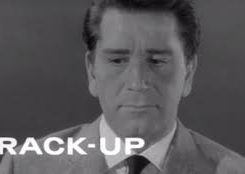
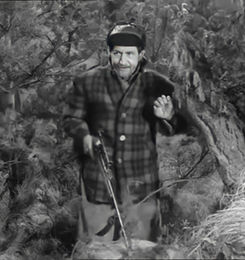




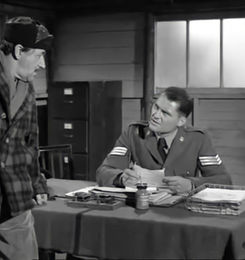









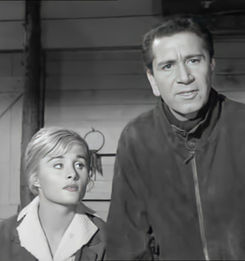






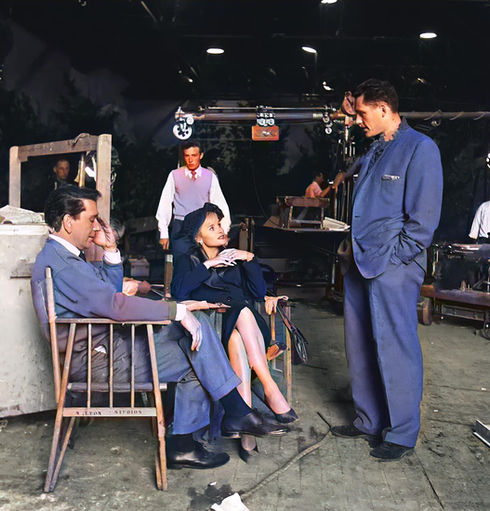











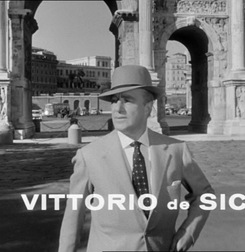

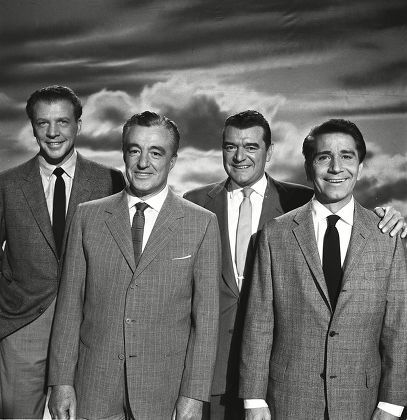


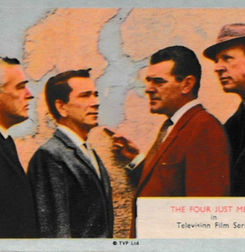


%201_edited.png)